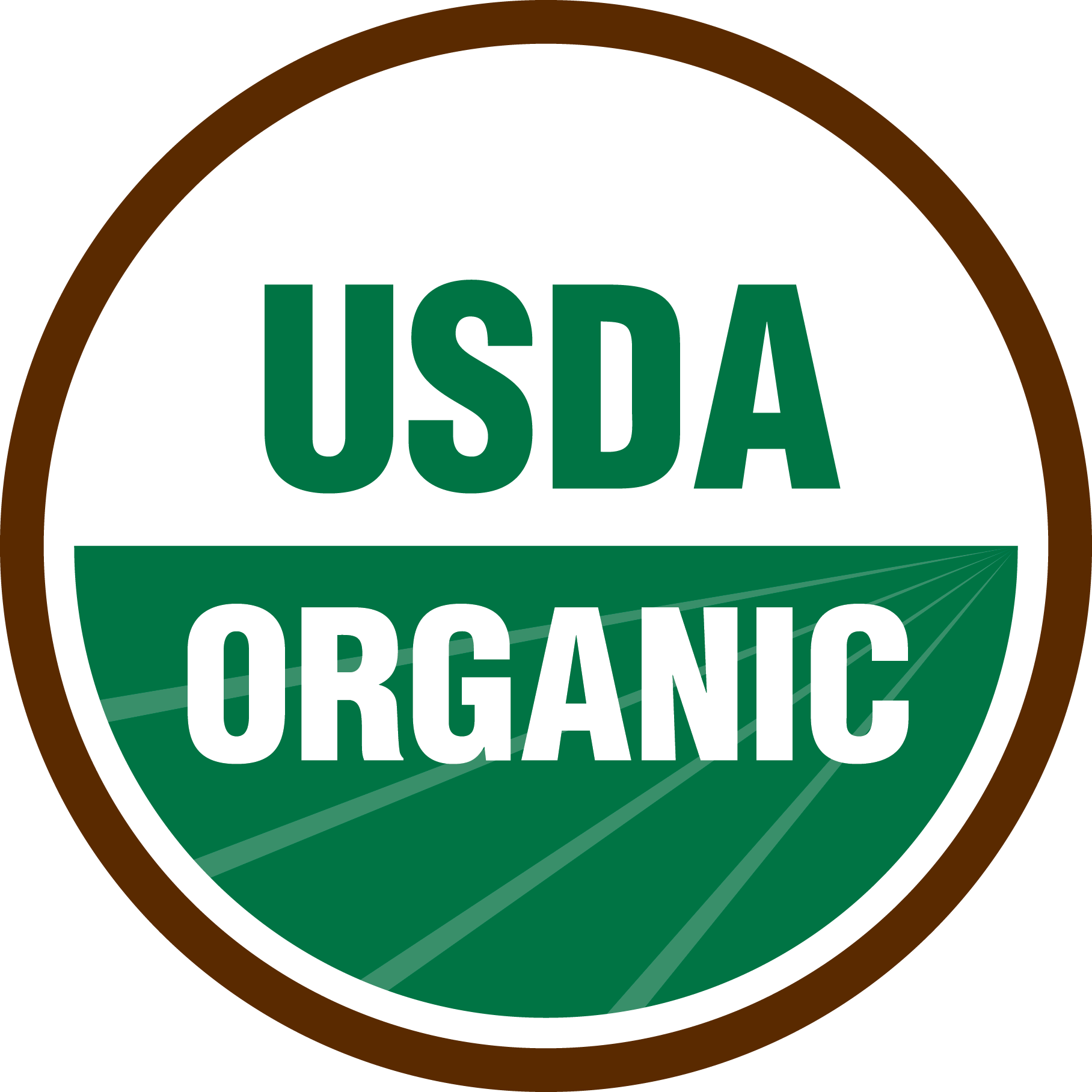
GROWING PRACTICES

We are Certified Organic and raise our produce chemical-free
When we say no herbicides, pesticides, synthetic fertilizers, or GMO we mean NONE. That means the only thing that ends up on our crops is cool rain and plentiful sunshine. We eliminate weeds through hand weeding and mechanical cultivation and only use fertilizer and organic-matter approved for Certified Organic production. We also employ sustainable management practices that protect the environment, our neighbors, and ensure the fertility of our farm into perpetuity. These practices include crop rotation, cover cropping fallow fields, controlling soil erosion and nutrient runoff, as well as preserving and nurturing habitat for beneficial insects and animals. Our crops are even raised from Certified-Organic seed varieties whenever they are available.
What does Organic mean?
In order to be USDA Certified Organic a farm must adhere to comprehensive rules set by the National Organic Program that restrict the use of pesticides, herbicides, and fertilizers. Not only is our produce grown to those standards but we go further by eliminating GMO seed and employing management practices to either sustain or improve the larger ecosystem and natural environment. That means protecting groundwater resources, preventing soil erosion, improving soil quality, using conservation tillage practices, limiting our waste and consumption of non-renewable resources, and preserving and maintaining natural habitat for beneficial insects and animals that are often affected by chemical use like birds, bats, and bees.
If you don't use any pesticides at all how do you control bugs?
This is by far the most complex part of our farm. We employ a series of tactics to limit or eliminate damage from pests:
-
We use row cover. Row cover is a thin, white, semi-transparent blanket used to cover field crops. Row cover is just thin enough to allow 90% of sunlight to pass through, and just thick enough to keep pests out. Row cover is expensive and labor intensive but when used correctly, it eliminates 100% of pest damage. Row cover also has the added benefit of slightly increasing the temperature around plants and protecting them against frost in the spring and fall.
-
We rotate our crops. This means it will be 4 or more years before the same crop is planted in a place it's already been. Rotation helps confuse pests and keeps pests from hatching under the row cover.
-
We don't use pesticides. This sounds counterintuitive but we've found that pesticides approved for Organic production are only marginally effective at killing prolific pest species, but excellent at killing more temperamental beneficial insects. Our goal is to create a balanced population of both pests and the beneficials that survive by eating them. That way, losses remain minimal and major infestations never occur. Not to mention the time and money saved by not spraying can be put toward other aspects of plant care and quality.
-
We create and preserve habitat for beneficial insects by growing flowers and plants they like, and by maintaining suitable habitat for them to live in, like crop residue and tall grasses. We work hard not to disturb the environment around our fields, and even incorporate wildlife into our plan by providing habitat for birds and bats that eat insects.


